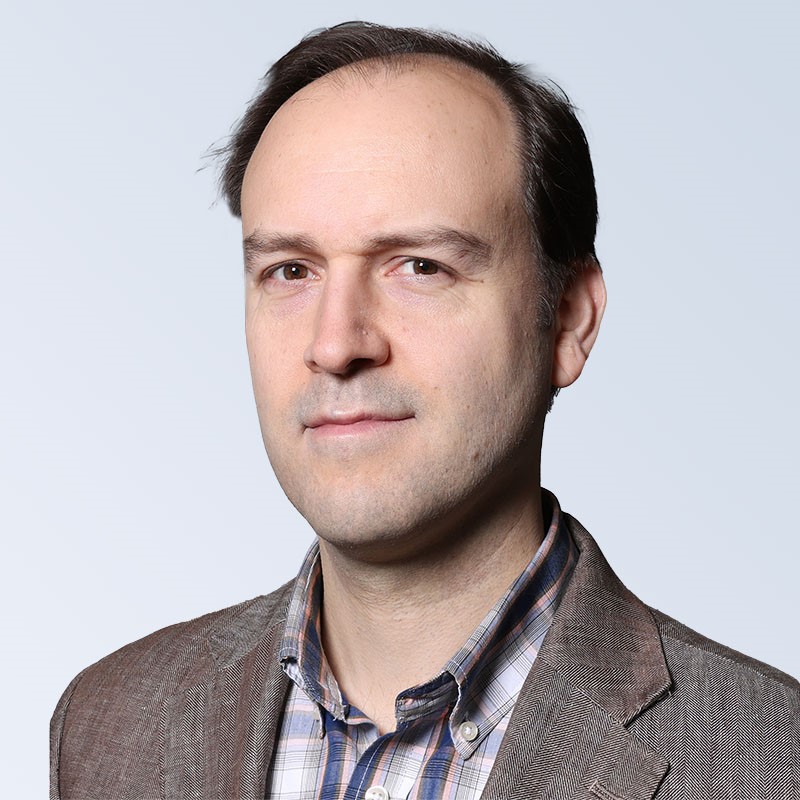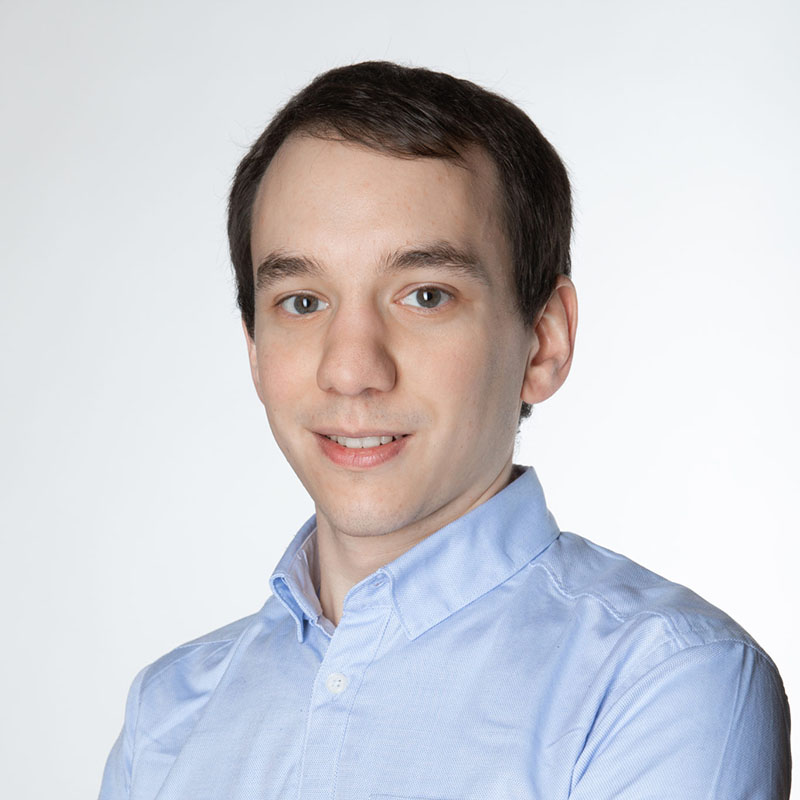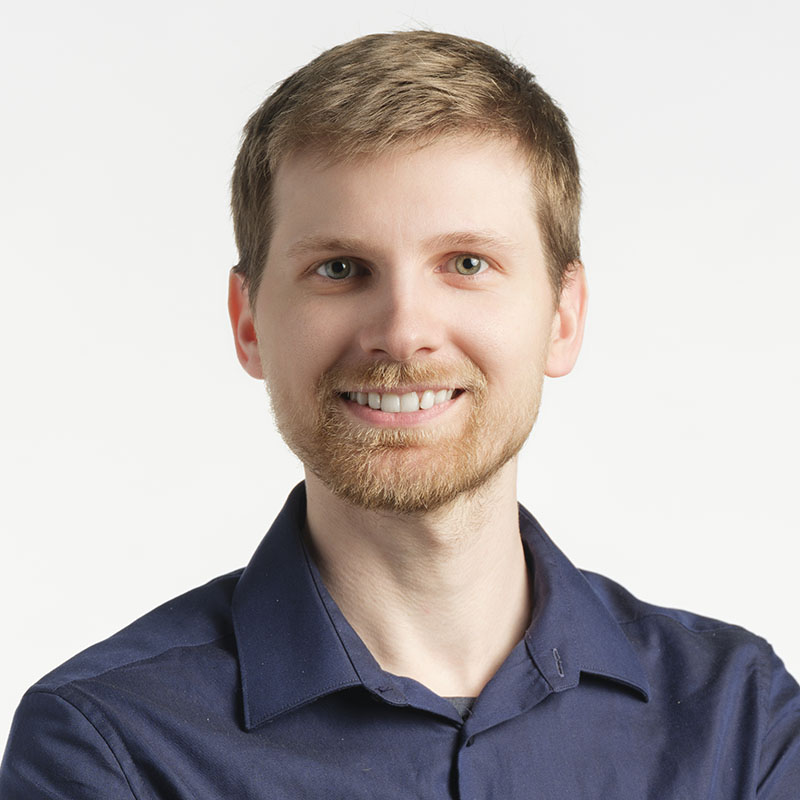
Exklusiver KI-Check-up für KMU


Saurabh Bhargava, joined the SDSC as a Principal Data Scientist in the Industry Cell at the Zürich office in 2022. Saurabh previously worked in the retail sector and the advertising industry in Germany. He lead and built various data products for customers using state of the art machine learning methods and industrializing them thereby adding value for the customers. He completed his PhD from ETH Zürich in June 2017 specializing in machine learning applications on Audio data. He obtained his Master’s and Bachelor’s degrees from EPFL and Indian Institute of Technology (IIT), Roorkee, India in 2011 and 2009 respectively. His interests and expertise are in combining state of the art data science and data engineering tools for building scalable data products.


Matthias Galipaud obtained his PhD in evolutionary biology in 2012 from the University of Burgundy in Dijon (France), and held postdoctoral positions as a mathematical biologist at the university of Bielefeld (Germany) and the university of Zurich, where he researched the evolutionary theories of aging and mate choice. In 2020, he became a data scientist, developing machine learning solutions for startups in Switzerland and Australia before joining the SDSC Innovation Team in November 2022.


Dan received an MSc in civil and environmental engineering from UC Berkeley and a Ph.D. from EPFL, where he developed models combining machine learning and geographic information systems to estimate renewable energy potentials on a large scale. After serving as a researcher/data scientist at Unisanté (Lausanne) and completing a one-year postdoc at the Quebec Artificial Intelligence Institute (Mila) in Montréal, Dan joined the SDSC Innovation team. His work has generally been focusing on crafting and tailoring machine learning methods and deep learning architectures for a variety of domains, most notably the spatio-temporal modeling and forecasting of environmental and energy related variables, as well as multiple applications in public health research.


Before joining SDSC, Arshjot Khehra received his MSc in Artificial Intelligence from USI Lugano, where he completed his thesis on hierarchical graph reinforcement learning. Previously, he worked for 4+ years across India and Singapore gaining data science experience in insurance, logistics, and manufacturing sectors. He also holds a BSc in Industrial Engineering from PEC Chandigarh. Over the course of his career, Arshjot worked on a wide array of projects, such as, handwritten text recognition and generation, voice matching across phone call recordings, policy lapse rate prediction for customer retention, and automated insurance claim processing.


Silvia holds an MSc in Computer Science from EPFL and a PhD in Computer Science from the University of York, UK. She has been a senior research fellow at the University of Trento and later at Politecnico di Milano, Italy. Here, she had the chance to work on Marie Curie and ERC projects relating to natural language processing. From 2012 to 2019, she was a Senior Manager and NLP expert at ELCA Informatique Switzerland, whose AI department she helped create and expand. Silvia joined the Swiss Data Science Center in 2019 and is currently its Chief Transformation Officer, in charge of the team leading organizations to digital transformation.

Presentation
Als Programmpunkt der Informatiktage 2025 haben die Standortförderung des Kantons Zürich, die ETH Industry Relations und das Swiss Data Science Center (SDSC) ein spezielles Programm für KI-interessierte Unternehmen entworfen - einen exklusiven KMU-Anlass, der den Nutzen von KI näher bringt und konkrete Ansätze und Hilfestellungen für Ihren Unternehmensalltag aufzeigt.
Nachbericht: Den Report der Informatiktage 2025 inklusive einer Kurzzusammenfassung dieser Veranstaltung lesen Sie hier.
Entmystifizieren Sie das grosse Thema KI und lernen Sie anhand von Praxisbeispielen, wie man mit kleinen Schritten eine gezielte Wirkung entfalten kann. Diskutieren Sie beim ausgedehnten Frühstück Ihre aktuellen Herausforderungen mit unseren Experten. Während des Check-ups prüfen unsere SDSC-Experten die KI-Tauglichkeit Ihres Unternehmens anhand Ihrer Informationen und Daten. In Einzelgesprächen skizzieren sie Ansätze für das KI-Potenzial und Einsatzmöglichkeiten in Ihrem Unternehmen. Lassen Sie sich beraten, auf welche Fragestellungen welche KI-Methoden die effektivsten Antworten liefern können.
Teilnahmebedingungen: Die Teilnahme war kostenfrei. Um Ihnen den grösstmöglichen Mehrwert zu bieten, halten wir die Zahl der Teilnehmenden klein. Bewerben Sie sich jetzt für dieses einzigartige KI-Check-up Programm! Anmeldeschluss war Freitag, der 14.03.2025.
Veranstalter:
Das Swiss Data Science Center, Standortförderung des Kantons Zürich, ETH Industry Relations
Details
KI-Check-up für KMU
Freitag, 28. März 2025
8:30 - 12:00 Uhr mit Brunch
“Swiss AI Tower" - Andreasturm (14. Etage)
Andreasstrasse 5
8092 Zürich-Oerlikon
Programme
Programm:
08:30 Ankunft & Kennenlernen bei Kaffee, Gipfeli & Müsli
09:00 Einführung, Informations- und Datenanalyse
· Vorstellung SDSC, Standortförderung Kanton Zürich, ETH Industry Relations
· Einführung: Entmystifizierung der KI für KMU
· Fallstudien: KI in der Produktion, Logistik und Dienstleistung
· Auswertung eingereichter Problemstellungen
10:00 „KI-Check-up“: Einzelfallbesprechung à ca. 20-25 min | Brunch-Buffet
11:30 Offene Feedbackrunde & Zusammenfassung
12:00 Veranstaltungsende
Über das Swiss Data Science Center (SDSC)
Ab 2025 agiert das Swiss Data Science Center (SDSC) als nationale Forschungsinfrastruktur mit dem Auftrag, effizientes Datenmanagement, maschinelle Lernmethoden und KI in der gesamten Schweiz zu etablieren und die digitale Transformation von Schweizer Unternehmen und Organisationen zu unterstützen. Mehr Informationen: www.datascience.ch
Über die Standortförderung im Amt für Wirtschaft, Kanton Zürich
Wir fördern Innovationen und unterstützen Unternehmen – von der Gründung bis zur Vernetzung in den Zürcher Schlüsselbranchen. Mit unserer Plattform «Innovation Zurich» bieten wir Orientierung sowie Informationen zum Innovationsstandort. Ansässige Unternehmen unterstützen wir mit dem Angebot «KMU und Innovation» bei ihren Innovationsvorhaben. Zudem sind wir auch Anlaufstelle für Anliegen von ansiedlungsinteressierten Unternehmen. Weitere Informationen finden Sie unter: zh.ch/standort | innovation.zuerich | kmu-innovation.zuerich
Über ETH Industry Relations
Sucht Ihr Unternehmen Forschungspartner an der ETH Zürich? ETH Industry Relations unterstützt Sie bei der Suche nach kompetenten Partnern, organisiert Besuche und Workshops und bietet Beratung zu Finanzierungsmöglichkeiten für Forschungskollaborationen. Mehr Informationen: https://ethz.ch/de/wirtschaft/industry/collaborations.html
Other events

Synthetic Data for Biomedical Applications


Before joining SDSC, Arshjot Khehra received his MSc in Artificial Intelligence from USI Lugano, where he completed his thesis on hierarchical graph reinforcement learning. Previously, he worked for 4+ years across India and Singapore gaining data science experience in insurance, logistics, and manufacturing sectors. He also holds a BSc in Industrial Engineering from PEC Chandigarh. Over the course of his career, Arshjot worked on a wide array of projects, such as, handwritten text recognition and generation, voice matching across phone call recordings, policy lapse rate prediction for customer retention, and automated insurance claim processing.


Matthias Galipaud obtained his PhD in evolutionary biology in 2012 from the University of Burgundy in Dijon (France), and held postdoctoral positions as a mathematical biologist at the university of Bielefeld (Germany) and the university of Zurich, where he researched the evolutionary theories of aging and mate choice. In 2020, he became a data scientist, developing machine learning solutions for startups in Switzerland and Australia before joining the SDSC Innovation Team in November 2022.


Valerio started his career working for 7 years as a particle-physics researcher at CERN. In 2016, he moved to consulting, applying data science in several industries. First, he joined the Quant team of Ernst & Young in Geneva. Later, he created his own company, SamurAI sàrl, providing consulting services for his clients. He also has a passion for teaching very complex subjects in simple terms. That is why he particularly enjoys offering training programs to private companies and universities. Valerio joined the SDSC in May 2022 as a Principal Data Scientist with the mission of accompanying industrial partners and other institutions through their data science journey.

Data Science for the Sciences


Guillaume Obozinski graduated with a PhD in Statistics from UC Berkeley in 2009. He did his postdoc and held until 2012 a researcher position in the Willow and Sierra teams at INRIA and Ecole Normale Supérieure in Paris. He was then Research Faculty at Ecole des Ponts ParisTech until 2018. Guillaume has broad interests in statistics and machine learning and worked over time on sparse modeling, optimization for large scale learning, graphical models, relational learning and semantic embeddings, with applications in various domains from computational biology to computer vision.

ENID | Enabling Innovation with Data Science at UNIL-EPFL


Prof. Olivier Verscheure is the director and founder of the Swiss Data Science Center (SDSC). Olivier also co-leads a joint training program between EPFL and HEC Lausanne, specifically designed for senior executives. Since 2018, Olivier has been a member of the Board of Directors of Lonza, a global leader in the life sciences sector. This company provides products and services to the pharmaceutical, biotechnology, and specialized healthcare industries.Olivier began his career at IBM Research after earning his Ph.D. in computer science from EPFL. He held several research and leadership positions at the IBM T. J. Watson Research Center in New York and co-created and co-directed the IBM Research center in Dublin, Ireland, before joining the EPFL in 2016.


Matthias Galipaud obtained his PhD in evolutionary biology in 2012 from the University of Burgundy in Dijon (France), and held postdoctoral positions as a mathematical biologist at the university of Bielefeld (Germany) and the university of Zurich, where he researched the evolutionary theories of aging and mate choice. In 2020, he became a data scientist, developing machine learning solutions for startups in Switzerland and Australia before joining the SDSC Innovation Team in November 2022.


Olivier joined the SDSC as a data scientist focused on industry collaborations in February 2023. He obtained a MSc in Physics (2017) from EPFL with a minor in Mathematics, and a PhD in Astrophysics (2021) from Aix-Marseille University. Before joining the SDSC, he worked in a small start-up, as a data scientist, on a variety of topics, including data wrangling, natural language processing and time series forecasting.


Clément became part of the SDSC team in January 2019, assuming the role of a Data Scientist with an emphasis on industry-oriented projects. He holds a Bachelor of Science degree in Physics, acquired in 2016 from the École Polytechnique Fédérale de Lausanne (EPFL) in Switzerland. Following this, he earned a Master of Science in Computational Science and Engineering in 2018, also from EPFL. Throughout his academic journey, Clément concentrated on leveraging Data Science and Machine Learning techniques to enhance efficiency in industrial processes. Subsequently, he developed a specialized interest in Generative AI, with a particular focus on Natural Language Processing (NLP), especially in the application of Large Language Models for innovation.


Thibaut holds a B.Sc in Computer Science from HEIG-VD. Before joining the SDSC, he worked in startups where he developped a diverse skill set combining cloud infrastructure, database and application development. Thibaut is very enthusiatic about new technologies and best coding practices and he is looking forward to supporting the team and its projects.

SDSC-Connect 2023


Prof. Olivier Verscheure is the director and founder of the Swiss Data Science Center (SDSC). Olivier also co-leads a joint training program between EPFL and HEC Lausanne, specifically designed for senior executives. Since 2018, Olivier has been a member of the Board of Directors of Lonza, a global leader in the life sciences sector. This company provides products and services to the pharmaceutical, biotechnology, and specialized healthcare industries.Olivier began his career at IBM Research after earning his Ph.D. in computer science from EPFL. He held several research and leadership positions at the IBM T. J. Watson Research Center in New York and co-created and co-directed the IBM Research center in Dublin, Ireland, before joining the EPFL in 2016.


Silvia holds an MSc in Computer Science from EPFL and a PhD in Computer Science from the University of York, UK. She has been a senior research fellow at the University of Trento and later at Politecnico di Milano, Italy. Here, she had the chance to work on Marie Curie and ERC projects relating to natural language processing. From 2012 to 2019, she was a Senior Manager and NLP expert at ELCA Informatique Switzerland, whose AI department she helped create and expand. Silvia joined the Swiss Data Science Center in 2019 and is currently its Chief Transformation Officer, in charge of the team leading organizations to digital transformation.


Roberto holds an M.Sc. and a Ph.D. in Particle Physics from the University of Torino, Italy. He has worked for several years in fundamental research as a senior fellow and data scientist at the CERN Experimental Physics division and on a research project supported by the Belgian National Fund for Scientific Research (FNRS). In 2018 he moved to EPFL to work on data mining and Machine Learning techniques for the built environment and renewable energies. He has started and led multiple collaborations with academic and industry partners in the energy domain. Roberto joined the SDSC in September 2021 as a Principal Data Scientist with the mission of accompanying industries, NGOs and international organizations through their data science journey.
Contact us
Let’s talk Data Science
Do you need our services or expertise?
Contact us for your next Data Science project!


